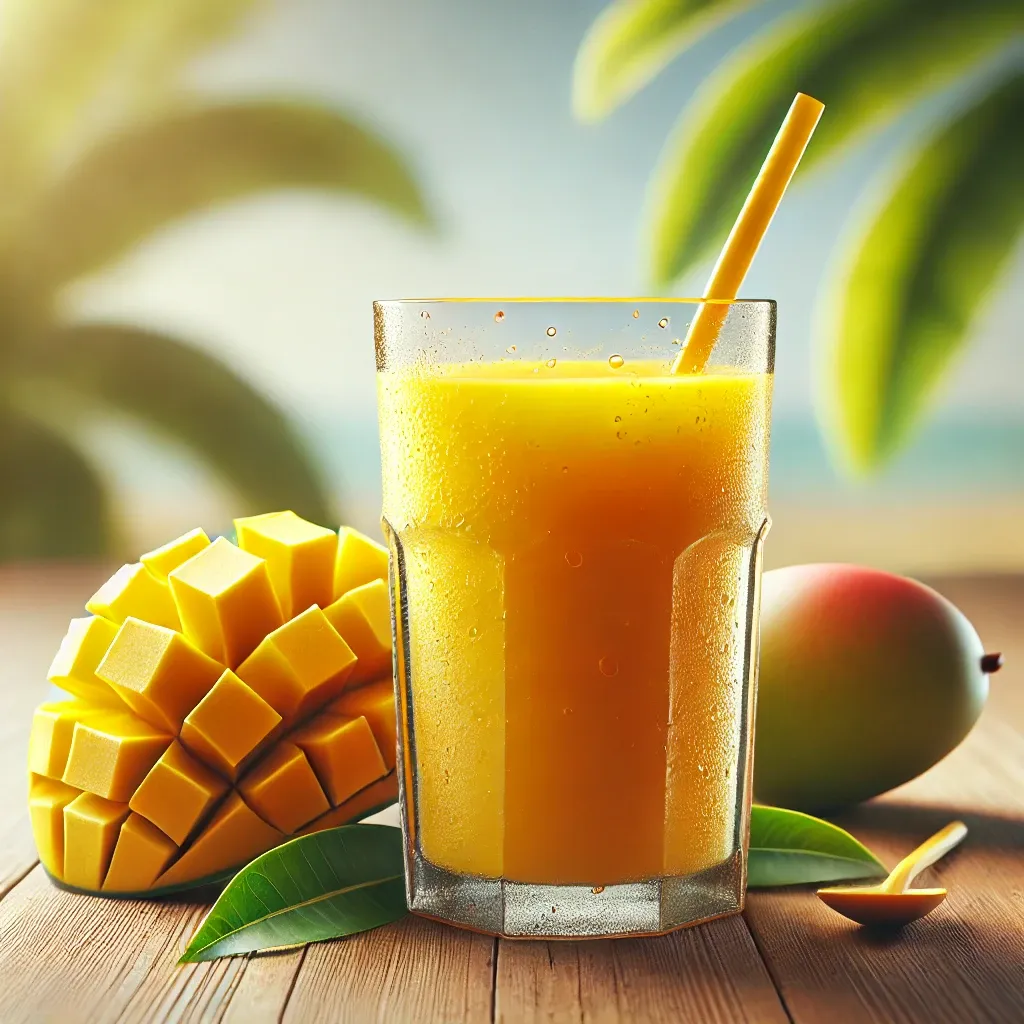Which Fruit Juice Should Diabetics Avoid? Spotlight on Mango Juice
Fruit juice can be a convenient way for diabetics to consume essential nutrients, but managing blood sugar levels requires caution. Mango juice, in particular, is noted for its potential to spike blood sugar levels rapidly, making it one of the juices to consume with care. Recent studies reveal that among fresh fruit juices, mango juice scores the highest in both Glycemic Index (GI) and Glycemic Load (GL), which is crucial information for diabetics seeking to manage their health effectively.
The study, conducted by the Food Science Department at Alassane Ouattara University in Côte d'Ivoire, analyzed the blood sugar responses of commonly consumed fruit juices among diabetics. The results indicate that mango juice has the highest GI and GL compared to apple, papaya, and orange juices, suggesting it is less suitable for frequent consumption by diabetics.
The Relationship Between Fresh Fruit Juices and Blood Sugar Response
What Are Glycemic Index and Glycemic Load?
Glycemic Index (GI) measures how quickly a food raises blood sugar levels, with glucose scoring 100 as a benchmark. Foods are categorized as high GI (above 70), medium GI (55–69), and low GI (below 55). Glycemic Load (GL) combines GI with the quantity of carbohydrates consumed, providing a more comprehensive indicator of a food’s blood sugar impact. GL is classified as low (10 or below), medium (11–19), or high (20 or above).
Research Findings: Mango Juice's Glycemic Impact
The study shows mango juice has a GI of 56.41, placing it in the medium category, but it surpasses apple (31.50), papaya (49.67), and orange (42.97) juices. Its GL of 7.46 is also the highest among the juices tested, followed by papaya (5.06), orange (3.91), and apple (2.56). Given its relatively high scores, mango juice should be consumed in moderation by diabetics.
Considerations When Choosing Fruit Juices
Guidelines for Consuming Mango Juice
Mango juice offers rich flavors and high levels of vitamins A and C, but its strong blood sugar impact necessitates cautious consumption for diabetics. If mango juice must be included, pairing it with high-fiber foods during meals can help mitigate blood sugar spikes.
Benefits of Apple Juice and Orange Juice
Apple and orange juices have relatively lower GI and GL, making them safer options for diabetics when consumed in appropriate quantities. Apple juice contains polyphenols, which are antioxidants beneficial for cardiovascular health. Orange juice, rich in vitamin C, supports immune function.
Characteristics of Papaya Juice
Papaya juice has a moderate glycemic impact and contains the digestive enzyme papain, which aids digestion. However, like all juices, excessive consumption can still raise blood sugar levels, so moderation is key.
Tips for Diabetics Consuming Fruit Juices
Maintain Appropriate Portions
Since fruit juices contain less fiber than whole fruits, their impact on blood sugar can be more pronounced. Limiting intake to 100–150 ml per day is recommended.
Incorporate Fiber
Pairing fruit juices with high-fiber foods such as nuts or vegetables can slow the rate of blood sugar increase.
Monitor Blood Sugar Response
Track blood sugar levels after consuming juice to determine an individual’s optimal serving size.
Healthy Alternatives: Whole Fruits and Infused Water
Instead of juices, consider alternatives such as fruit-infused water or smoothies that retain fruit fiber. These options allow for better nutrient retention and blood sugar control.
FAQ
- What are healthier alternatives to mango juice?
- Apple juice, orange juice, or fruit-infused water are great choices for diabetics.
- Is it safe to drink fruit juice on an empty stomach?
- It's best to avoid this, as blood sugar levels can spike rapidly. Consume with meals instead.
- Should mango juice be avoided completely?
- Not necessarily, but it should be consumed in small quantities and with caution.
- What is the difference between fruit juice and smoothies?
- Smoothies retain fruit fiber, leading to a lower blood sugar impact compared to juices.
- Can sugar be added to fruit juices?
- Adding sugar is not recommended, as fruits already contain natural sugars.
- How can the impact of fruit juice on blood sugar be reduced?
- Pairing with high-fiber foods or consuming in smaller portions can help.
- Which juice should diabetics avoid the most?
- High-GI and high-GL juices like mango juice should be limited.
- Are all fruit juices harmful for diabetics?
- No, low-GI juices can be enjoyed in moderation.

